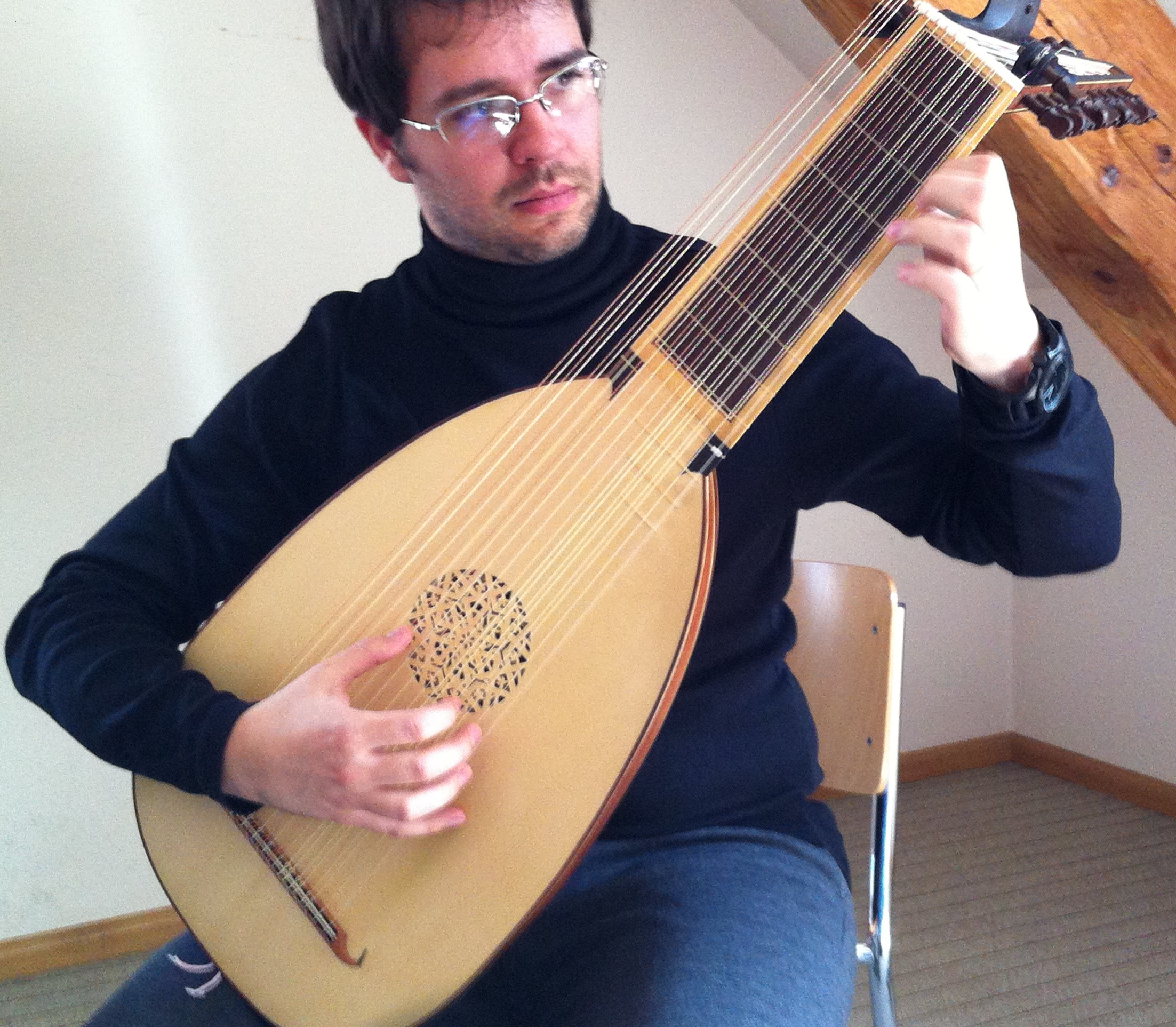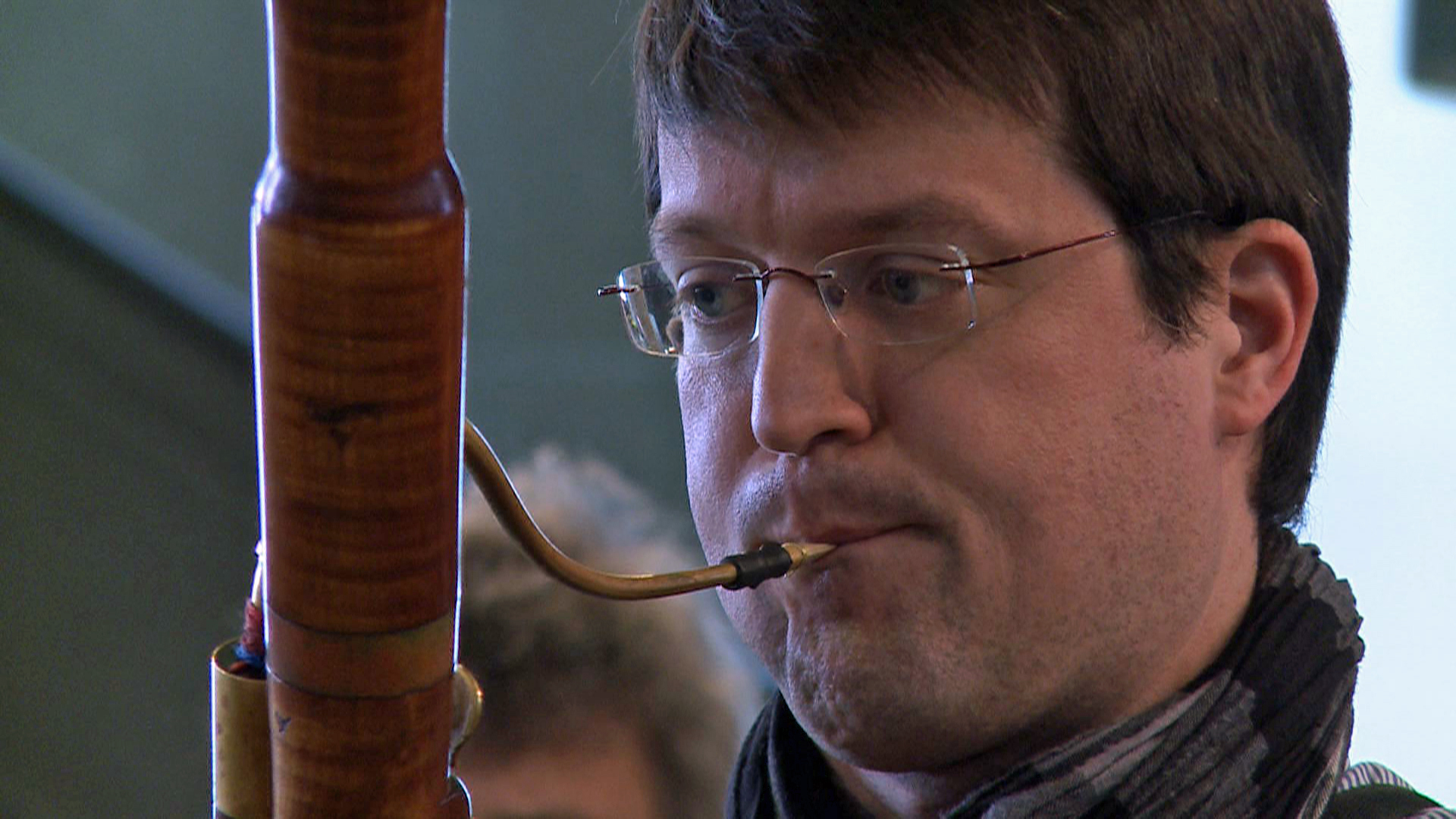Old music becomes new art

On a sunny day in Basel, delicate tunes waft through the windows of the Schola Cantorum, the world’s oldest institution for the study of “old music”. Eighty years on, that term - and the school’s role - is constantly being re-defined.
Founded by musician and conductor Paul Sacher in 1933, today’s Schola Cantorum Basiliensis is still the same collection of stone buildings perched on a hill among Basel’s medieval side streets. And, the institution still concerns itself with the holistic study of “old music” – the way music was written and performed in the past – focusing on the time between the chants of the ninth century and the symphonies of the early 1800s.
However, its new director Pedro Memelsdorff says a lot has changed since the days when he studied baroque flute as a young musician at the Schola, as the institution is commonly known.
“The world economy, sociology and big technological changes make it hard to even recognise the time I spent in the Schola compared to today,” he tells swissinfo.ch. “For so long, people looked at old music as a specialty – it’s the opposite. It’s actually the ability to be open to all possible styles and cultures that are expressed through music.”

More
The bassoon’s revenge
Indeed, the Schola’s 200 or so students are an international crowd, and a walk across the courtyard yields snippets of conversations in half a dozen languages. For Memelsdorff, the school embodies its host city, which lies at the crossroads of three countries and has footholds in several artistic movements.
“It’s a beacon; what we do in Basel is quickly visible and people pay attention to it,” he says. “Basel is practically a symbol of the international circulation of new art, and also old music. That’s a very nice metaphor, because we look at old music as new art.”
According to Memelsdorff, the Schola has especially become a beacon since the global economic crisis took hold; he says that, regretfully, many of the best music institutions in other European countries have had to cut back on offerings or even close, placing more demand on those remaining, including the Schola. The result has been “a line from here to the train station” of students waiting to audition for the small number of available spots.
Vinicius Perez was one of the lucky few, currently in his first year of study under the renowned lutenist Hopkinson Smith.
“I am where I belong, specialising in early Renaissance music – not just instrumental music but also vocal music, we learn how music was composed at the time, how it was improvised, how one interacted with music,” the 28-year-old Brazilian tells swissinfo.ch, pointing out his Renaissance dance teacher as she walks by in the cafeteria.
Studying dance, says Perez, helps him and other students understand the rhythm and impetus behind music of the time.

More
Vinicius Perez performs on the lute
Specialisation
Perez admits it’s not easy making a living as a lutenist, and his only income currently comes from teaching guitar at a school in Lucerne. But, after studying only modern guitar for years, he doesn’t regret his change of focus – although he remembers staring at his long fingernails, needed to play the classical guitar, for 20 minutes before resolving to cut them and turn to the lute.
As a teacher of young people just beginning to interact with their instruments, Perez says it’s sometimes hard to attract his students to the world of old music; he finds a “resistance” among many of them.
“I hear from a lot of my students, ‘that’s music for old people’,” he says. “And I say, ‘I’m not as old as you think, and I do it and I play it and I love it, even though I still love to listen to Jimi Hendrix and Led Zeppelin’. There is room for many types of music.”
Curiosity is the common denominator among those who are drawn to old music, Perez finds. Out of every ten of his students, about two ask about old music recordings and wonder about the instruments and those who played them at the time.
Every year, world-renowned lutenist Hopkinson Smith teaches a studio of about six students at the Schola Cantorum in lute performance; last year, he taught seven students from seven different countries.
Smith tells swissinfo.ch that every teacher at the Schola has his or her own pedagogical style and that the school doesn’t mandate a particular teaching method.
He believes it’s very important that his students be able to accompany other musicians well, since that is very likely how they will make at least part of their living as musicians. Otherwise, he feels his role is to “help students figure out the place of music in their lives” and set them up with opportunities and contacts to develop their careers.
Collaboration
If there is some resistance to studying old music among young generations, Perez sees a slowly growing interest among more academic circles, including in his home country of Brazil.
For him, the key to broadening the appeal of old music lies in creative collaborations, like a concert he recently gave in Lucerne with a Brazilian colleague. Perez played Renaissance pieces on the lute, his partner played contemporary Latin tunes by the likes of Villa-Lobos and Piazzolla on the guitar, and at the end, the two even played a piece together.
“There are some people who think there are rules and that you shouldn’t put such different-sounding things together, but I think we have to do what we believe in and believe in what we do,” Perez says.
“Let’s try something else and see what we can do to attract people, play an interesting concert and give them the feeling that they would come again if there were another concert. “
Redefinition
For Memelsdorff, who took over as director of the Schola in January, the future of the institution – and of its musical focus – lies in just such collaborations and, more broadly, in redefining how people interact with the school’s offerings. That, he says, can be accomplished through projects with other cultural institutions, exchange programmes lending students a new worldview, and embracing a change of perspective.
“Right now, the question is whether old music even exists anymore, because if old music is a historic perspective into what has been, then you can say all music is old music – every tone that has ever sounded has sounded,” he says. “Old music is just music.”
And a sea change is already underway in the musical world, adds Memelsdorff – led by new generations and new ways of thinking.
“For a long time, in many of the world’s top music schools, classical music was seen through the way of thinking that we are perfection and everything has been leading up to us. That’s not how we operate, and maybe young people have heard enough of that.”
The Schola Cantorum Basiliensis is part of the system of Universities of Applied Sciences in Northwest Switzerland. Primarily funded through the cantons of Basel Country, Basel City, Solothurn and Aargau, the Schola also provides scholarships to many of its students through grants and donations from private institutions and individuals.
In addition to the high-level University of Early Music with about 200 students, the Schola offers instruction to young people just beginning their musical studies through a music academy .
The University offers instruction in music ranging from the ninth century to the Romantic period, with specialisations in dance, singing and instruments ranging from the lute to the violin. It is also a leading research institution with faculty from all over the world and sponsors the reconstruction of period instruments.
According to director Pedro Memelsdorff, the Schola provides a strong bridge to the professional world for its students through abundant networking and performance opportunities.

In compliance with the JTI standards
More: SWI swissinfo.ch certified by the Journalism Trust Initiative

You can find an overview of ongoing debates with our journalists here. Please join us!
If you want to start a conversation about a topic raised in this article or want to report factual errors, email us at english@swissinfo.ch.